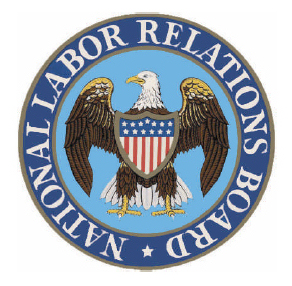 GM, Target, and Dish Network have just been told that their corporate social media policies are excessive to the point of being unlawful. What makes the words stick is the source: the official memorandum from the acting general counsel of the National Labor Relations Board, Lafe Solomon.
GM, Target, and Dish Network have just been told that their corporate social media policies are excessive to the point of being unlawful. What makes the words stick is the source: the official memorandum from the acting general counsel of the National Labor Relations Board, Lafe Solomon.
It seems that in their zeal to avoid the much feared “viral disaster,” these companies have trod upon the worker’s rights established by the National Labor Relations Act. Erik Sass of MediaPost gives us an example:
The main criterion for judging whether a corporate social media policy is inappropriate is whether it ‘would reasonably be construed to chill the exercise of Section 7 rights’ of employees as set forth by the National Labor Relations Act. For example, a corporate social media policy which forbids employees from disclosing any kind of confidential information could be used to prevent the employee from complaining about unsafe or unfair working conditions, in violation of Section 7 rights, which are designed in part to make sure employees have outside recourse for reporting these kinds of issues.
Dave Jamieson of The Huffington Post takes a look at some of the big names called on the carpet:
General Motors, one of the largest automakers in the world, has gone so far as to forbid employees from posting anything potentially ‘misleading’ about the company online and even told employees to be careful about ‘friending’ their co-workers on Facebook, the memo indicates.
Other companies, including DISH Network and Target, have also maintained corporate policies that at least partially violated provisions of the National Labor Relations Act, according to the memo. That federal law covers collective bargaining and employees’ ‘protected activities’ in the workplace.
Social media is still a comparatively new factor as far as most HR departments are concerned. The flamboyant headlines we’ve all seen when a company suffers a social media disaster are enough to make anyone working in that capacity quite wary. Unfortunately, while trying to “plug the holes,” they often find themselves imposing limits that have already been deemed unlawful.
This is not to say that this is done deliberately, although GM’s decision not to change its policy despite the recommendation could give that impression to some. In some cases, it may be a matter of the company not having explored all the permutations of its edicts.
Not all companies were castigated in the memo. Walmart is actually held forth as an example for the others to follow. Solomon found all aspects of Walmart’s social media policies to be lawful.
Walmart’s minimal guidelines on the subject are mostly summed up in the following definition of inappropriate postings: “Inappropriate postings […] may include discriminatory remarks, harassment, and threats of violence or similar inappropriate or unlawful conduct.” The memo notes that the company’s core tenet is quite legal, “Be Respectful.”
In addition to using Walmart as an example, the memo offers detailed notes on how to rewrite the policies. Jenna Green writes on Law.com:
So what are employers allowed to do? The report included an example of an acceptable policy, which included warnings such as ‘you are solely responsible for what you post online,’ and ‘Before creating online content, consider some of the risks and rewards that are involved. Keep in mind that any of your conduct that adversely affects your job performance […] may result in disciplinary action up to and including termination.’
Former NLRB general counsel Ronald Meisburg, now a partner at Proskauer Rose, found this section to be ‘of greatest interest,’ he said via e-mail. ‘This goes beyond the usual guidance given by the General Counsel and should be of special interest to employers.’
I’m glad to see the General Counsel is taking extra measures like that. Every aspect of business and society is undergoing an Internet-driven shift. Government is usually not agile enough to keep up.
Logo of the National Labor Relations Board is used under Fair Use: Reporting.